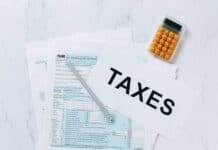Let’s answer the question directly: Can you go to jail for not paying taxes? Yes—but only in specific situations that involve willful wrongdoing. Most people who fall behind owe civil penalties and interest, not handcuffs. Jail time typically enters the picture when authorities can prove intentional acts such as tax evasion, filing false returns, or willfully failing to file. That distinction matters: being unable to pay is different from refusing to pay or lying to the government.
Where the criminal line is drawn can protect you. If you’ve missed filings or can’t afford your bill, you still have options—file anyway, set up a payment plan, and document your hardship. By acting quickly, you reduce penalties and demonstrate good faith, which helps keep the issue out of criminal territory. In other words, the fastest way to defuse the fear behind can you go to jail for not paying taxes is to engage with the tax authority, not disappear.
This guide breaks down when unpaid taxes become a crime, how prosecutors think, and the steps that move you back to safety. We’ll compare civil vs. criminal consequences, show examples of behavior that puts people at risk, and outline practical actions—installment plans, reasonable cause letters, amended returns—that help you get compliant again. Along the way, we’ll keep returning to the core question—can you go to jail for not paying taxes—so you know exactly where you stand and how to avoid the outcomes you fear most.
Can you go to jail for not paying taxes? You can, but jail is usually reserved for willful misconduct—tax evasion, filing false returns, or intentionally not filing. Inability to pay is a civil issue (penalties, interest, liens), not typically criminal. File your returns, contact the tax authority, and set up a plan. Acting fast and honestly is the best way to avoid criminal exposure.
Why Jail for Unpaid Taxes Isn’t a Simple Yes/No
Most people worried about jail over tax debt are anxious about missed deadlines or a balance they can’t afford. The law treats those differently from criminal tax evasion. If you can’t pay but you file an accurate return, the fallout is usually civil penalties, interest, liens, and levies. Those sting, but they don’t usually involve incarceration. Your intent—what you knew and meant to do—matters as much as the dollars due.
Criminal exposure generally requires willfulness. Authorities look for signs you knew your duty and deliberately violated it: hiding cash, using nominee accounts, inventing deductions, or ignoring required filings year after year. In that frame, the likelihood of jail shifts from “unlikely” to “possible,” depending on behavior. The bigger and clearer the pattern of deceit, the higher the risk.
Another nuance: not filing can be riskier than filing without paying. Filing starts the statute-of-limitations clock, clarifies what’s owed, and signals cooperation. If you can’t pay in full, you can still set up installments. Many people confuse “can’t pay” with “won’t file,” and the latter draws more attention from investigators.
Documentation is your friend. Keep records that show income, expenses, and attempts to pay or arrange payments. Use checklists, receipt apps, or even creative prompts from a pictionary word gen to jog your memory about deductible categories—then back everything with actual receipts. In practice, that’s how people move from fear to resolution—turning a looming problem into structured, manageable steps.
Finally, act early. The longer you wait, the more penalties, interest, and collection actions pile up, and the harder it becomes to argue you simply made a mistake. Early contact, accurate filings, and realistic payment plans convert a scary, open-ended question into a contained, civil matter.
When Does Unpaid Tax Cross Into Crime?
Unpaid taxes turn criminal only when willful conduct—lying, hiding, or obstructing—can be proven, not when you’re simply unable to pay. Use the checkpoints below to spot where behavior crosses from civil penalties into prosecutable offenses.
Willful Failure vs. Inability to Pay
Not paying because you’re broke is a civil problem. Refusing to file or lying on returns can trigger criminal scrutiny. That’s the core distinction.
Evasion and False Statements
Concealing income or fabricating deductions can move a debt into prosecutable territory. Paper trails, cash skimming, and sham entities are classic red flags.
Repeated Non-Filing
One missed year rarely leads to handcuffs. A pattern of ignoring filings—even after warnings—suggests willfulness and raises the stakes.
Obstruction and Destroying Records
Tampering with documents or misleading investigators escalates risk. Transparency and cooperation make criminal allegations less likely.
The Role of Materiality
Bigger, ongoing schemes draw more attention. Small, isolated mistakes with prompt corrections typically stay on the civil side.
How to Avoid Jail for Unpaid Taxes: A Practical Playbook
Single paragraph: If the prospect of prison over tax debt keeps you up at night, use the steps below to reduce risk. Your goals: file accurate returns, show cooperation, fix errors fast, and make steady progress—even if you can’t clear the balance today.
- File before you pay. Submit accurate returns immediately, even if you owe. Filing first shows compliance with reporting laws and shrinks criminal exposure.
- Start an installment agreement. Choose a monthly plan that fits your budget. Automated payments demonstrate good faith and ease collection pressure.
- Fix past mistakes with amended returns. If you underreported income or claimed shaky deductions, amend proactively to reduce penalties and signal honesty.
- Document hardship and reasonable cause. Medical bills, disasters, or job losses can justify penalty relief—provide clear evidence.
- Avoid silence—communicate often. Answer letters, keep appointments, and upload requested documents on time. Engagement builds credibility.
- Get professional help when stakes rise. If audits, subpoenas, or interviews appear, hire a qualified tax pro to keep the matter squarely civil.
Civil Consequences vs. Criminal Penalties—Know the Difference
Civil enforcement uses penalties, interest, liens, and levies to secure payment—not imprisonment. If you filed accurately, missed a deadline, or fell behind during a cash crunch, you’re usually facing civil tools. The antidote is straightforward: accurate filings, a realistic payment plan, and documented hardship. Many who fear the worst are relieved to learn the system prefers payment over prison.
Criminal penalties exist to punish willful fraud—schemes to hide income, fabricate records, or obstruct investigations. Prosecutors must show intent, which is difficult to prove when you correct mistakes promptly, communicate openly, and provide records. It gets easier to prove if you forge documents, use shell entities, or ignore warnings for years. Practically, everyday choices—file now vs. delay, disclose fully vs. hedge—determine whether a hypothetical risk becomes a courtroom problem. Choose accuracy, transparency, and steady repayment to keep the issue resolvable.
Bold, Clear Steps If You’re Already Behind on Taxes
Behind on taxes? Don’t freeze. The fastest way to keep a civil problem from drifting toward criminal territory is to file and communicate—use the steps below to get compliant and regain control.
Start With Compliance—File Everything
Even partial or estimated returns are better than nothing. Filing reduces the chance the matter escalates beyond civil enforcement.
Set a Paydown Strategy That Works
Installments, temporary hardship status, or a negotiated settlement—pick the path that fits your budget and maintains momentum.
Clean Up Bookkeeping Gaps
Gather W-2s, 1099s, bank statements, and receipts. Strong records turn a scary audit into a documentation exercise.
Don’t DIY Complex Cases
Facing an audit, multiple unfiled years, or potential criminal exposure? Hire a professional to manage risk and keep the process on track.
Keep Communication Open
Respond to every notice. Missed deadlines create avoidable complications that can snowball.
Bottom Line
The phrase can you go to jail for not paying taxes captures a real fear, but the law focuses on intent. Civil problems—late filing, inability to pay, disorganized records—rarely lead to incarceration when you act in good faith. Criminal exposure grows with willful evasion, false statements, and obstruction. If you’re behind, file first, then pay over time, and document your situation. By replacing panic with a plan, you keep the answer to “could you face jail for tax evasion?” firmly in the no column—and turn an intimidating debt into a manageable process.
FAQ’s
What’s the difference between not paying and tax evasion?
Not paying because you’re short on cash is a civil problem (penalties/interest). Evasion involves willful acts—hiding income, falsifying records—and can be criminal.
If I can’t afford my tax bill, should I still file?
Yes. Filing reduces penalties, starts the statute clock, and shows cooperation. You can set up a payment plan after you file.
I missed several years. Am I at risk of jail?
It depends on intent and behavior. Repeated non-filing plus false statements raises risk. Prompt filing and transparency push your case back to civil territory.
Do payment plans stop enforcement?
They don’t erase interest, but they pause aggressive collection as long as you make agreed payments on time.
Should I amend a return with mistakes?
If you underreported income or took unjustified deductions, amend proactively. Corrections demonstrate good faith and reduce penalties.










![What is a Credit Union? [What to Know Before Joining] State Employees Credit Union](https://www.moneytaskforce.com/wp-content/uploads/2020/04/108704235_s-100x70.jpg)

